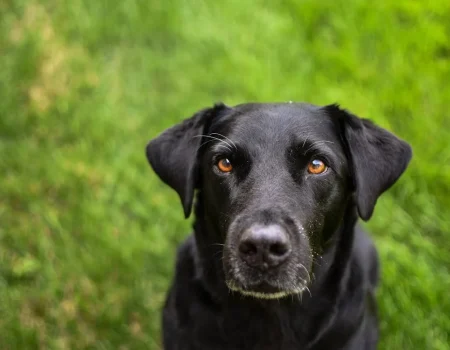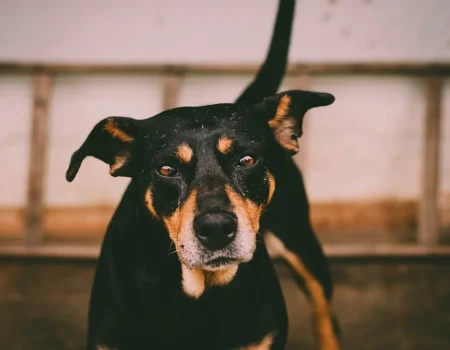
Docile and peaceful creatures like the bearded dragon are hard to come by, but they are great for little kids who are getting their first chance at raising a pet because of their love for interaction and playfulness, and their fairly high life expectancy.
If well-raised they can even be taken for short walks or let out of their cage to roam in the house.
Their diet in general is fairly inexpensive and easy to prepare and obtain. This is due to the fact that they have a wide range of meals that they can eat. But it is recommended that they eat a balanced diet to help extend their lives.
This article’s main focus is the diet or feeding aspect of raising a bearded dragon, can your bearded dragon eat mints? This article enlightens you on feeding your bearded dragon among other points raised.
Can Bearded Dragons Eat Mint?
Every time a pet is being fed or a diet plan is being constructed, always remember to add everything in moderation and according to size.
Feeding your bearded dragon mints could be either good or harmful depending on the size or amount of mint leaves they are being fed with and more importantly the species of the mint leaves.
Certain species of mint leaves are dangerous to a bearded dragon’s health, especially the ones high in phenol. Phenol is an antibiotic that helps cleanse the internal system of a bearded lizard, but in high amounts, it can cause a lot of deficiencies or ultimately organ failure.
It is also known that mints contain certain oils which are volatile and can cause aspiration in bearded dragons.
But nonetheless, mint boasts of a respectable nutritional value and fiber level.
Mint has a calcium to phosphorus ratio of 3.3:1, which is considered beneficial for bearded dragons as it is higher in calcium than phosphorus, promoting better bone health when fed in moderation.
Also, you should take your bearded dragon to a vet who works with reptiles to find out if it has any allergies to mints.
Once that obligation is fulfilled, consideration and measurement of size and regularity should be taken into consideration, but all that can’t be done without knowing the nutritional value of mints.
Nutritional Value Of Mints To Bearded Dragons
After getting the consent of a certified reptile veterinarian, the decision to feed your bearded dragon mints is to be taken with caution.
To do this you need to confirm the nutritional value of mints and consider it carefully.
Firstly, it has to be established that mints contain a lot of water,
Most species are made of about sixty percent water. This fact simply points out that bearded dragons shouldn’t be given mints in excess amounts to prevent indigestion or poisoning.
The main nutrients obtained from mints are; vitamin A, iron, potassium, and sodium.
All these nutrients are needed only in small quantities for the bearded dragons, so a few leaves tossed into their evening salad will be just perfect.
Are Mints An Important Aspect Of A Bearded Dragons Diet?
In a pet’s diet or feeding routine, we have major or important foods and minor ones, which are also called snacks or treats.
The few nutritional values provided by the mint make it fall in the category of minor food class and it should be fed once or twice a week to the bearded dragon.
In the case of mints, a little serving is enough for it to perform its important functions in the body.
In situations like this, for example, experience is required for choosing your bearded dragon’s treat or snack, it is advisable to consider the nutritional value and how much of the meal is needed to get adequate nutrients.
Mints are not a major food or nutrient source for bearded dragons, moderation is advised.
It is recommended that mint should only make up a small portion of a bearded dragon’s diet, ideally being offered as a treat rather than a staple. Fruits and vegetables should comprise 75-80% of an adult bearded dragon’s diet, with fruits (including mint) making up no more than 10%.
Side Effects Of Feeding Mints To Bearded Dragons In Excess
It can cause constipation and vomiting, this could be due to the high water content or the chemical phenol reacting in the system of the bearded dragon.
It can also cause aspiration, this is when the oils in the mints are absorbed into the respiratory system and can cause breathing problems.
In worst-case scenarios, which are at times rare, when the mint is given in excess to bearded dragons, their health starts deteriorating gradually, and this will eventually culminate in occurrences like organ failure, inactivity, irritation, and sometimes death.
It is best to avoid letting the situation get to such a bad point, but if it does, it is in the best interest of the pet owner to get help from a certified reptile veterinarian.
Household Treatment For Your Bearded Dragon In Case Of Poisoning
In the case of ingesting mint or other substances in harmful excess, it is advised to seek medical help first.
But if medical care isn’t readily available for the ailing bearded dragon, household treatments can be implemented on the bearded dragon in question
In the case of aspiration, grind up some activated charcoal and mix it with a little water. Fill a dropper with the mixture and place one or two drops in the bearded dragon’s mouth every two minutes.
If vomiting occurs, make sure to keep the bearded dragon hydrated sufficiently to prevent dehydration. This can be done by simply dropping some drops of fresh water into the wide and inexpensive diet range; their food is easily accessible and can be found everywhere.
A well-balanced diet is recommended for your bearded dragon’s longevity. This can be achieved by researching their foods and choosing the ones with the best nutritional value.
Bearded dragons are most commonly fed once a day with treats and water, This is because they don’t require that much food to lead a healthy life.
They can eat foods like parsley, guava leaves, crickets, cabbage, lettuce, chicory, and endives, among many others, and most of their foods can be gotten at a local vegetable store.
What a bearded dragon eats in particular can only be found out by the pet owner or a reptile vet.
This is why you need to keep in touch with a reptile vet if you have a bearded dragon to make sure it stays healthy and lives as long as possible.
Mint is high in vitamins A and C, along with fiber, which can aid digestion. However, it should not be overfed; the general consensus is that herbs like mint can be included occasionally, about once every few weeks, to maintain a varied diet without risking digestive upset.
Conclusion
A bearded dragon is a loving pet if you treat it well, and treating it well stems from good feeding and proper and clean living space. They require properly clean alcoves and lighting. Without all this, you can have a snappy and easily irritated bearded dragon. Make sure to take good care of your pet in all aspects.
Finally, your pets require regular medical care and checkups. Set up a routine checkup schedule for your bearded dragon’s good health.
More articles on animal care and feeding will be updated shortly, make sure to keep reading to learn more about your pet’s care and hygiene.
Thank you for reading.
References
Can Bearded Dragons Eat Mint Leaves? Vet-Reviewed Nutrition Facts & FAQ
Can Bearded Dragons Eat Mint Leaves?
Can Bearded Dragons Eat Mint? Benefits, Risks & How to Feed
Can Bearded Dragons Eat Mint? A Detailed Guide
Disclaimer
This content on Bagrica is for informational purposes only. Consult a professional for pet care or farming advice. Bagrica is not liable for any actions taken based on this information.







No Comment! Be the first one.